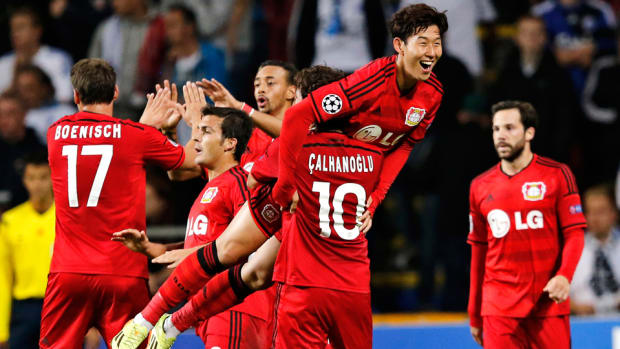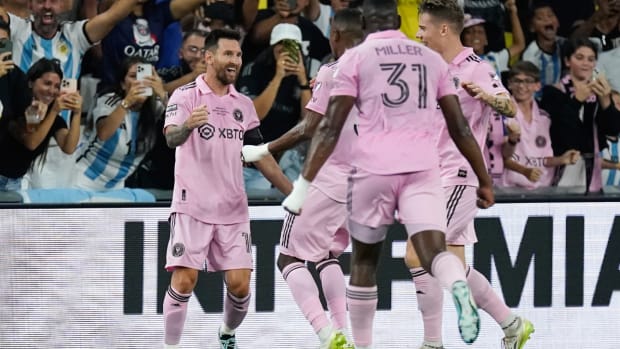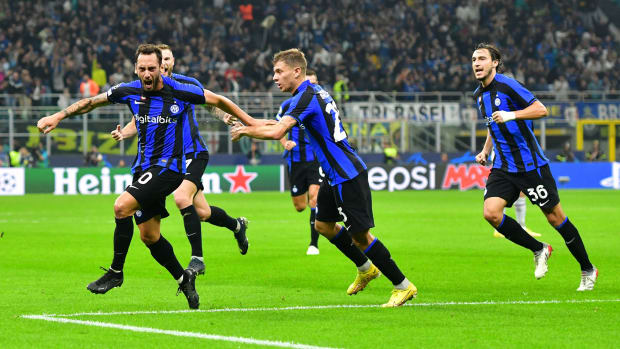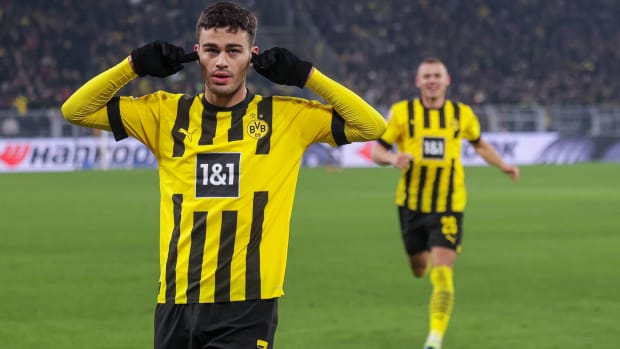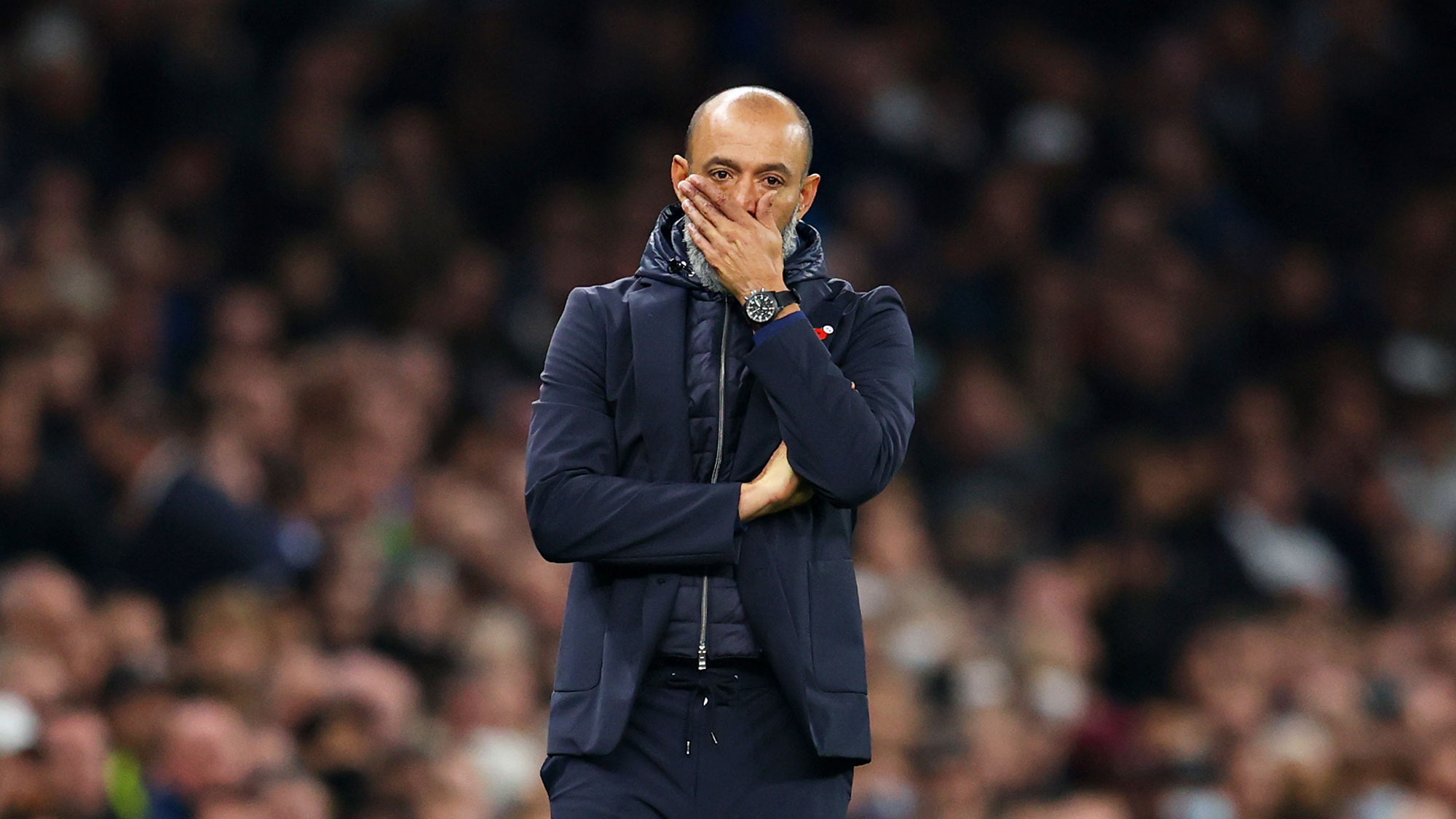
Nuno Takes the Fall for Tottenham's Overall Malaise
In football, it is always the manager who takes the blame. There were some chants against the chairman Daniel Levy during Tottenham’s 3–0 defeat to Manchester United on Saturday, but it was Nuno Espírito Santo who bore the brunt of the hostility of the crowd, at halftime, at full time, when he took off Lucas Moura for Steven Bergwijn and as he attempted to carry out his media duties at the end of the game, and it was Nuno who was sacked on Monday morning. But the truth is that Nuno was not the cause of the Spurs' crisis, rather he is a symptom of it—and a victim.
Levy and sporting director Fabio Paratici held an emergency meeting Sunday at which Nuno’s future and a possible replacement were discussed. Antonio Conte, who turned the club down in the summer, once again heads the shortlist, with Porto’s Sérgio Conceição and the out-of-work former Shakhtar Donetsk and Roma manager Paulo Fonseca also under consideration.
Yet this is not really about Nuno. When a manager is sacked after just 10 league games in charge, the decision to appoint him is usually just as much to blame as the manager himself. It was clear to everybody in the summer that he was not the first choice, and that has undermined his authority. Perhaps a more ebullient and overtly charismatic figure could have won the crowd over, but Nuno’s quiet intelligence seemed swamped by the circumstances. It didn't necessarily start out like that. A 1–0 win over Man City to open the season was followed by two successive victories, but since then, it's been five losses in seven league games and a precipitous fall to eighth place, 10 points behind league-leading Chelsea. Tottenham's nine goals scored are tied for second-fewest in the league.
Many of the complaints about his conservative style were couched in the claim that they went against the traditions of the club—as though there is any club that doesn’t dream of playing brilliant attacking football—but the cautiousness of the approach against Man United was baffling. Against a side that had kept only one clean sheet in its previous 20 games, there was surely an opportunity to attack, to try to rattle a wounded team early. Instead, sitting off allowed United to play its way into the game. It felt like a profound misreading of the emotional mood of the game.
But whatever mistakes Nuno has made, the bigger issue is Tottenham itself. The move to the new stadium inevitably affected the transfer budget, but the frustration Mauricio Pochettino felt was not just that players were not bought, it was that they were not sold, either, something that was at least in part down to Levy’s fabled tough negotiating style. There were players he felt had been exhausted by his intensity and constant demands, who lingered too long. The result was the poor form of 2019, which was hidden to an extent by the victories over Manchester City and Ajax in the Champions League and progress to the final.
That autumn, Levy had a decision to make, either stick with Pochettino and fund a complete rejuvenation of the squad, or sack Pochettino and hope a new manager could make it work. He took the latter option, appointed José Mourinho and the club has yet to recover. There is a sense of staleness and weariness about everybody and there must be in some quarters a sense of regret that Harry Kane was not offloaded with the $180 million or so he would have brought in being used to finance an overhaul of personnel.
It’s not just Nuno who is harmed by recent events. Levy, having overseen the construction of one of the best stadiums and training grounds in the world, is now left without a team to play in it. Paratici, the sporting director he appointed at the end of last season to create a squad worthy of the stage, failed with his first major piece of recruitment. They cannot get the next appointment wrong, and that of course strengthens the hand of, for instance, Conte in any negotiation.
Quite why Conte pulled out of negotiations in the summer was never clear, but the suggestion is that the time the deal was taking to complete made him doubt just how certain the Spurs' board was that it wanted him—and he is a manager who demands complete buy-in and complete control. At Juventus, Chelsea and Inter Milan, he ended up leaving after falling out with his board, usually over what he saw as a lack of transfers.
But the project clearly appealed to him, and with more guarantees he probably can be persuaded. If nothing else, Conte would provide Spurs with a desperately needed jolt of energy, but nobody should think the present malaise is just about the manager.
More Soccer Coverage From Jonathan Wilson:

